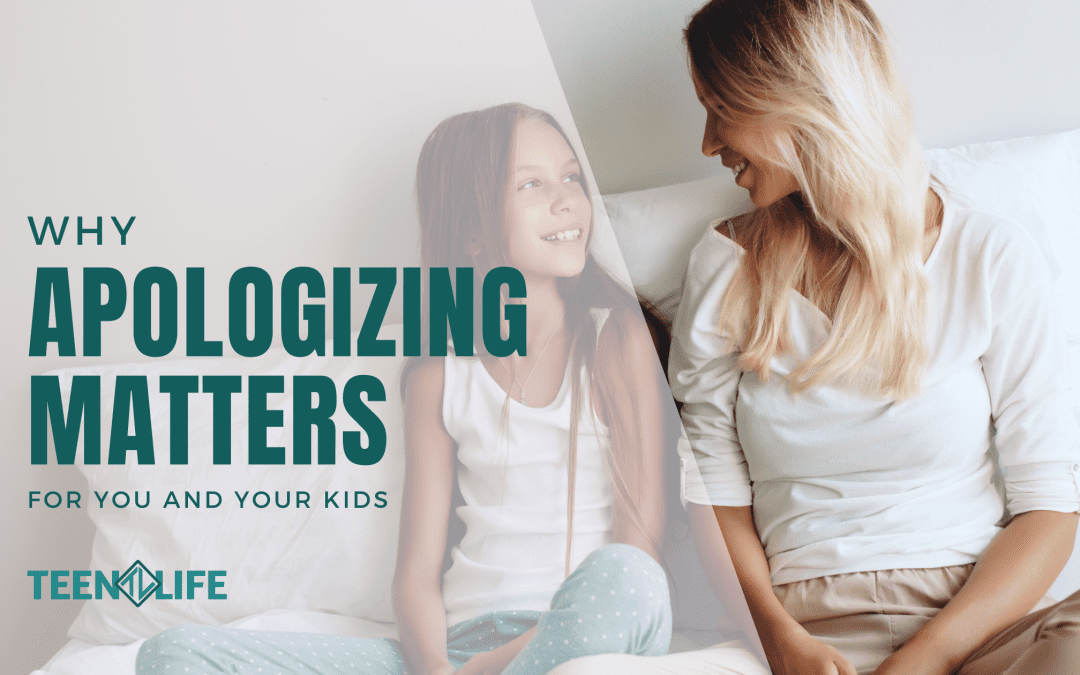I overreacted last week.
I’m sure that seasonal stress and staying up to wrap presents was a factor. I realized about halfway in that my tone was harder than it would usually be, and I softened it. But I hadn’t tempered my initial reaction in the same way and my son was embarrassed. Not so much of me, but in general.
We were walking home and I said, “Hey, I’m sorry I embarrassed you in front of those kids. I didn’t mean to.”
He said, “I know.” “I love you,” I said. He said, “I know. I love you, too.” And we talked about why I was worried.
Later, I apologized to the other kid who had been there. He said, “Oh no. You were right. But thanks for apologizing.” And everyone played together at the park for a while.
As parents, it’s hard to keep a neutral tone sometimes. We’re wired to protect and defend our kids. We’re tired and often frustrated. We overreact.
Honestly, even about 2 minutes after it had happened, I could see in my head how I could have handled the situation better. But fight or flight had kicked in before I got there.
The older I get, the more fearless I’ve become in owning and repairing my mistakes. To own the areas where we could have improved and just say I’m sorry. It wasn’t something I learned as a child or a teenager. I was afraid of being wrong. Afraid of talking about it or seeming weak. It wasn’t until well into my twenties that I had the confidence to admit mistakes openly and fully own them. And I’m pretty sure I lost out on deeper connections, better self-esteem, and less shame.
I’m hoping my kids will grow up with the courage to fail and recover again and again. I wasn’t always brave enough to do it.
In my experience, there are a few key factors at play that make us brave in the face of our shortcomings.
- Feeling loved.
When kids and teens know that someone loves them unconditionally, they’re more willing to be wrong because their identity isn’t linked to perfection. - Recognizing that failure in one moment is not failure as a whole.
This is often called a “growth mindset.” When we recognize that we can learn from our mistakes, we are better for it and we are more likely to keep trying until we succeed. - Realizing that the whole is too important to risk and failure to repair my mistakes would put it at risk.
At Teen Life, we talk a lot about being shock-proof. For me, this hit home when I started my journey to become a better parent. The stakes are too high to risk that my teenagers might not come to me with big things like drugs, mental illness or pornography. Teens are facing some pretty serious obstacles on their way to healthy adulthood.If we overreact to smaller things along the way, how will they trust us with the things they really need help with?
If they don’t see us recover and repair mistakes, how will they believe that they can do it too?
- Putting people over pride.
If we don’t learn to set aside our own pride (or shame) and sincerely apologize, we’re sacrificing relationships. But sincere vulnerability can strengthen them. It’s that simple.
Parenting is hard. It requires us to look in the mirror and own our imperfections- and give ourselves grace. Apologizing is part of that process. So our kids can learn to do the same, too.

Kelly Fann
Digital Media Manager
Kelly Fann | Digital Media Manager
Kelly has a desire to empower young people to grow into the best version of themselves. Using her background in branding and word-smithing, she is a master at highlighting resources that help teens learn skills that will enable them to grow and to adapt, to enjoy life and to be better citizens. Kelly has a MA in Linguistics from North Texas University.
